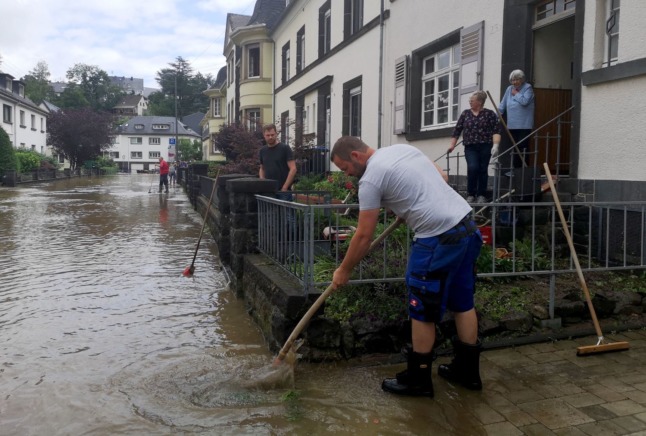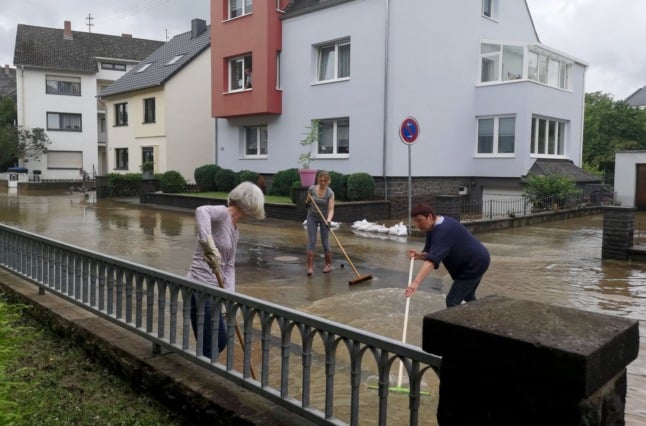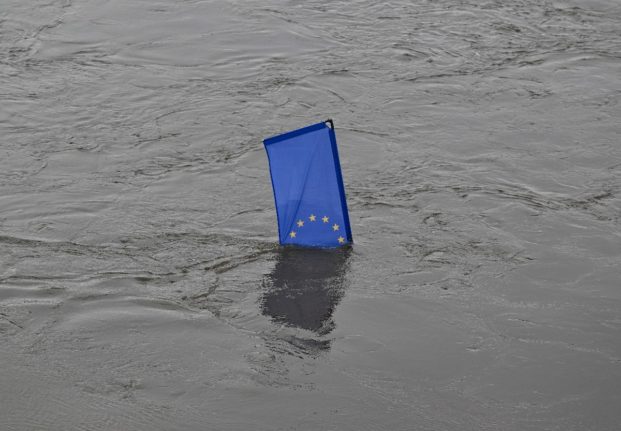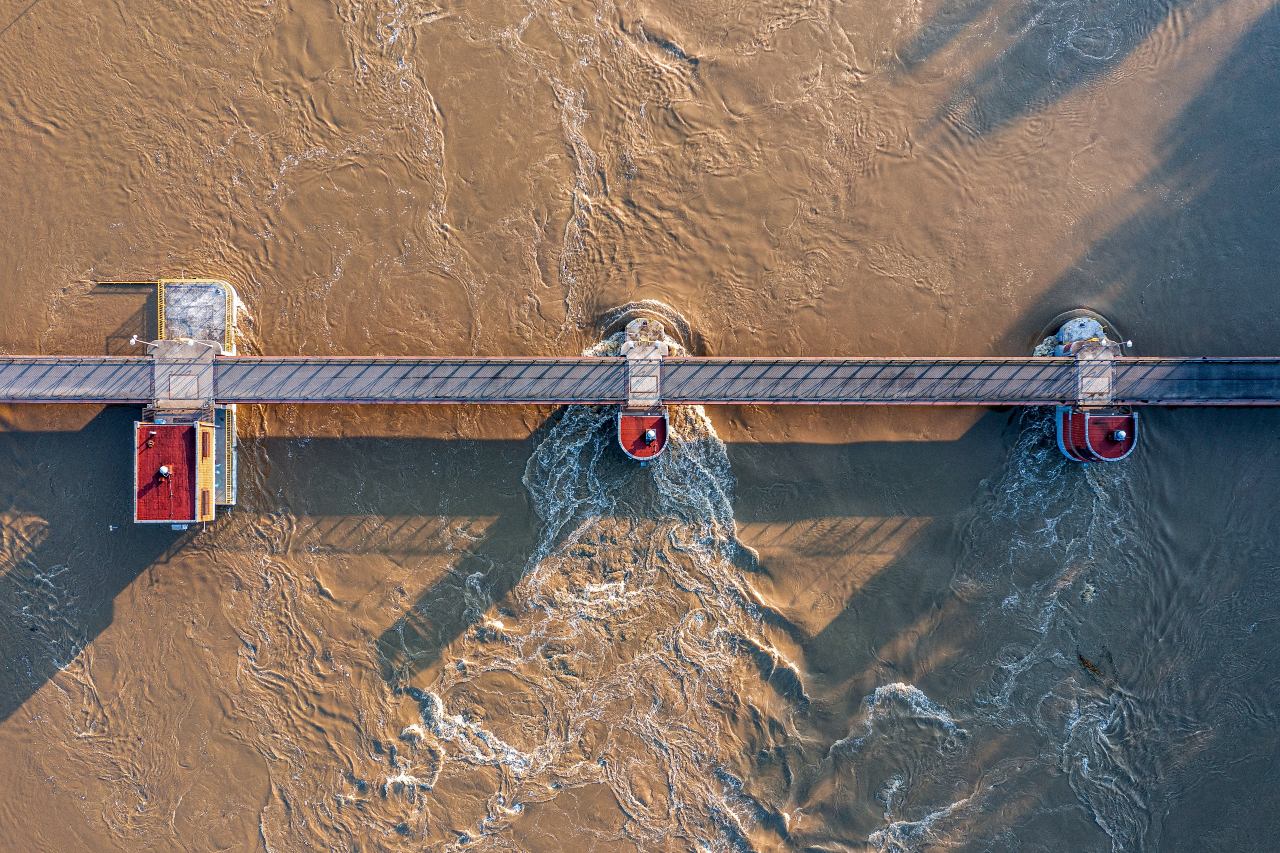The small town is some 40 kilometres (25 miles) south of Ahrweiler in the volcanic Eifel region, the hardest-hit district in severe storms that have killed dozens of people in Germany since late Wednesday.
The small Nette river that runs through the quaint town has burst its banks and residents spent much of Wednesday night awake, trying to keep the water at bay.
LATEST: Floods leave several dead and many missing in western Germany
Many were pumping their basements and surveying the damage on Thursday, with no clear idea of when the water might recede enough to start the clean-up.
Even the local fire station was pumping its own basement, with exhausted firefighters sitting nearby, while others were busy clearing away uprooted trees.
“Nobody was expecting this – where did all this rain come from? It’s crazy,” said pensioner Annemarie Müller, 65, as she looked over her flooded garden and garage from her balcony.
“It made such a loud noise and given how fast it came down we thought it would break the door down,” she said.
SEE ALSO:
- IN PICTURES: Torrential rain leaves trail of destruction across western Germany
- Germany in shock after deadly flooding
‘Nothing we could do’
Though locals were grateful they had not been as badly hit as other regions, where people have died and houses were washed away, they were still under shock.
“We already had extreme floods in 2016, but these have been much worse,” said Uli Walsdorf, deputy head of the Mayen fire service.
“We were prepared, we had built up defences. But you can never be 100 percent prepared for events like this,” he said.

“We sat on the balcony and watched as the Nette overflowed. There was nothing more we could do,” pensioner Müller said, describing how friends had come to help her rescue electrical appliances from the cellar in the night.
Andrea Schaer, 55, who lives nearby on the second floor of an apartment block, said residents in her building had clubbed together until 2:00 am to “save” the apartment on the ground floor.
“We were lucky, the cellar is completely full and the water came up to four centimetres (1.6 inches) above the ground floor. It happened quickly, in 20 minutes the whole cellar was full, so I was a bit scared,” she said.
Local teacher Ortrud Meyer, 36, was waiting outside her home for an electrician after borrowing a pump to clear water from her flooded cellar.
The fire service wouldn’t be arriving for several hours as they had more urgent business to attend to, she said.
“We are aware of the danger, but we have never seen anything like this,” said Meyer, who has lived in Mayen for six years and does not keep valuables in her cellar.
“My father-in-law is almost 80, he’s from Mayen and says he’s never experienced anything like this,” she said.
By Michelle FITZPATRICK




 Please whitelist us to continue reading.
Please whitelist us to continue reading.
Member comments